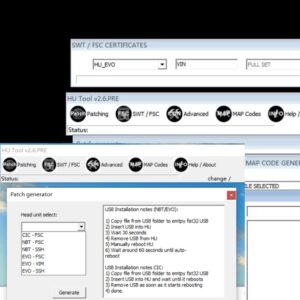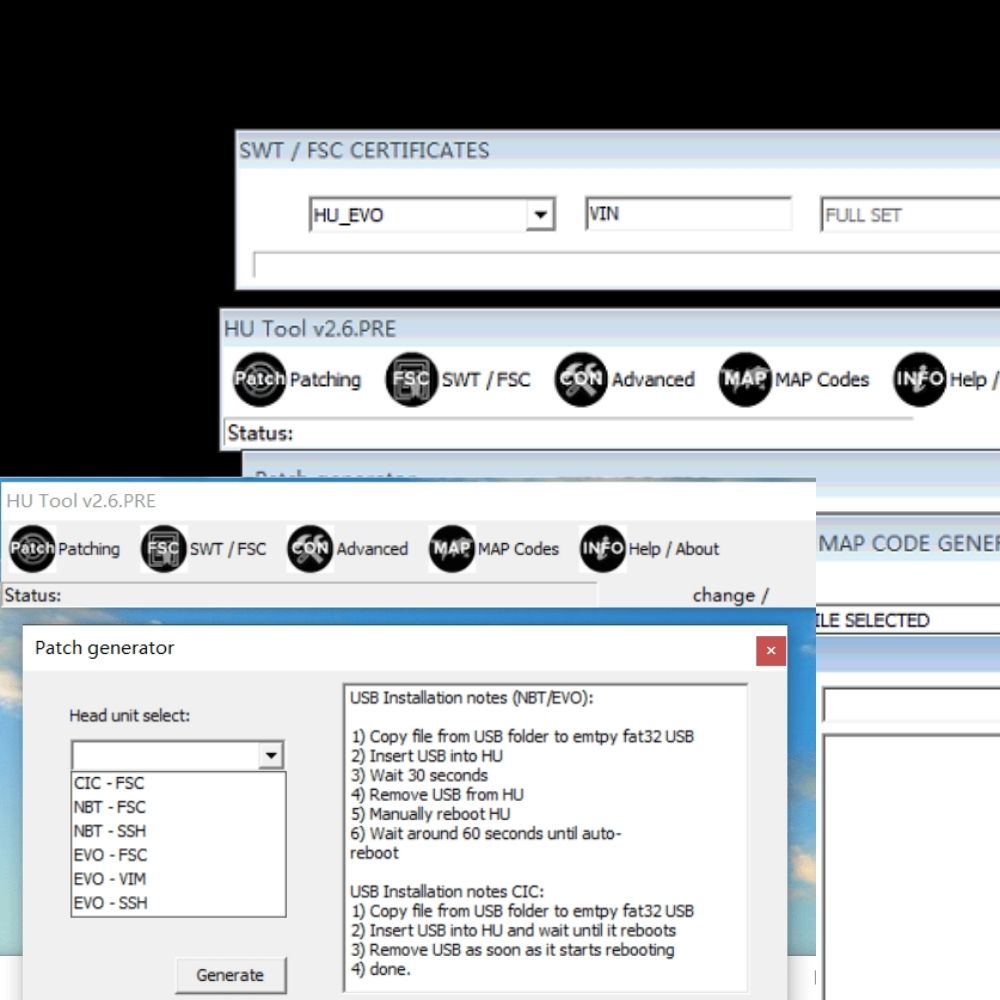
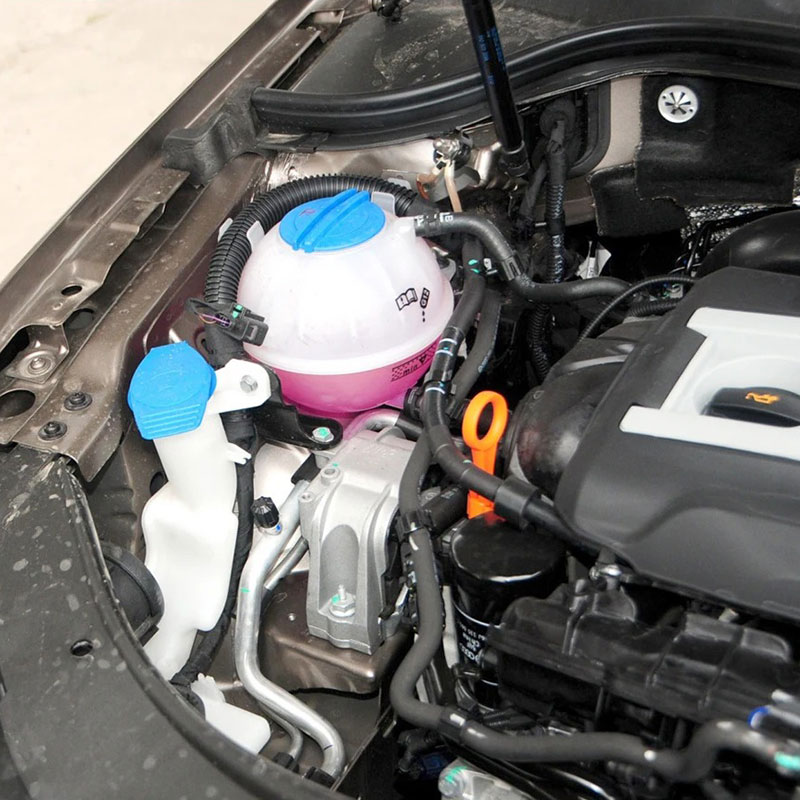
Volkswagen Engine Coolant: Types, Maintenance, and Common Issues
Volkswagen engine coolant represents a sophisticated fluid specially formulated to maintain optimal engine performance, prevent component damage, and ensure longevity in Volkswagen vehicles. Beyond simply preventing overheating, these specialized coolants provide comprehensive protection against multiple threats to engine integrity. This article examines the evolution, characteristics, and proper usage of Volkswagen coolant formulations, offering valuable insights for Volkswagen owners seeking to maximize vehicle performance and lifespan.
Table of Contents
ToggleEvolution of Volkswagen Coolant Specifications
Volkswagen has developed several coolant specifications over the decades, each representing advancements in technology and environmental considerations. Understanding this evolution provides context for the various coolant types found in Volkswagen vehicles today.
G11 Specification (1994)
The G11 coolant (VW TL 774 C) was introduced in 1994 and contained silicates, making it ideal for older Volkswagen models with copper/brass radiators and lead solder heater cores. It is not suitable for newer engines that require modern coolant formulations.
G12/G12+ Specifications (1996)
In 1996, Volkswagen introduced G12 and G12+ coolants (VW TL 774 D/F) featuring Organic Acid Technology (OAT). These formulations improved corrosion protection and extended coolant life but lacked silicates, making them unsuitable for older cooling systems.
G12++ Specification (2005)
The G12++ coolant (VW TL 774 G) was introduced in 2005, offering superior long-term protection. It is nitrate-free and phosphate-free, making it a versatile choice compatible with G11, G12, G12+, G12++, G13, and G12 EVO coolants when the original coolant is unavailable.
G13 Specification (2008)
G13 (VW TL 774 J), introduced in 2008, brought an environmentally friendly formula using glycerin instead of glycol. It lowers CO2 emissions during production while maintaining excellent corrosion protection. However, it is not recommended for older systems with copper/brass radiators.
G12 EVO Specification (2019)
The most recent advancement, G12 EVO, was designed for Volkswagen models from 2019 onward. Like G12++, it is nitrate-free and phosphate-free, offering enhanced protection for modern Volkswagen engines.
Composition and Functions of Volkswagen Coolant
Volkswagen coolants serve multiple critical functions beyond temperature regulation, including:
- Temperature Regulation: Maintains optimal engine temperature under various conditions.
- Freeze Protection: Prevents freezing down to -40°C (-40°F).
- Corrosion Prevention: Protects against rust and metal degradation.
- Scale Prevention: Prevents chalk deposits that can reduce cooling efficiency.
- Foam Prevention: Ensures proper circulation and cooling efficiency.
- Heat Management: Raises the boiling point to around 135°C (275°F), reducing evaporation.
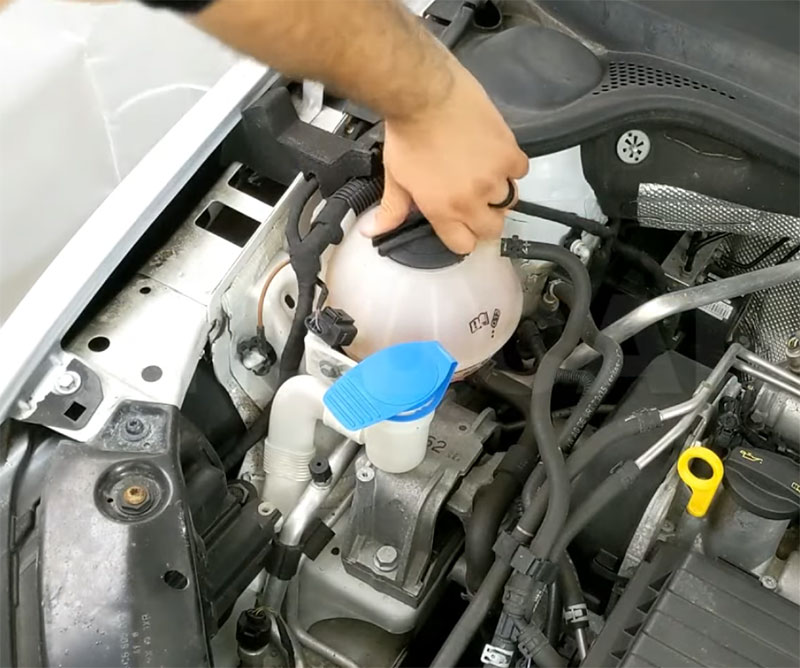
Proper Usage and Maintenance of Volkswagen Coolant
Mixing Ratios and Concentration
Volkswagen recommends maintaining a coolant-to-water ratio between 40% and 60%. Using less than 40% coolant reduces freeze and corrosion protection, while exceeding 60% can decrease heat dissipation, leading to overheating.
Maintenance Schedule
- A coolant flush is recommended every 30,000 miles or every two years, depending on driving conditions.
- For G12+, G12++, G13, and G12 EVO, some sources claim they are “lifetime coolants,” but periodic checks are still essential.
- Always check coolant levels and inspect for leaks or contamination.
Compatibility Between Different Coolant Types
- G12++ is a universal replacement for older coolant types, including G11, G12, G12+, G12++, G13, and G12 EVO.
- G13 is compatible with modern radiators but requires a complete system flush when replacing older coolant types.
- Mixing G11 with newer coolants (G12+, G12++, G13, G12 EVO) may turn the coolant brown but does not impact performance.
- If a vehicle was factory-filled with G12++, allowed replacements are G12++, G12 EVO, or G13.
Common Issues with Volkswagen Cooling Systems
Warning Signs of Cooling System Problems
- Coolant warning light illuminated on the dashboard.
- Engine temperature gauge reaching the red zone.
- Visible coolant leaks under the vehicle.
- Corrosion deposits in the cooling system.
- Fluctuating temperature readings or frequent overheating.
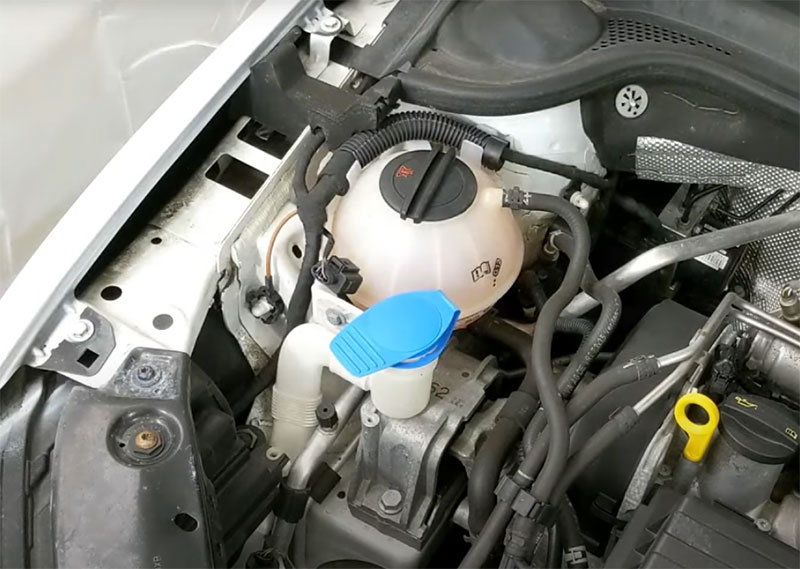
Common Question about Volkswagen Engine Coolant
Several issues can arise with your Volkswagen’s cooling system, including leaks, low coolant levels, and overheating. Recognizing the signs of these problems is crucial for preventing further damage.
1. How Do I Know if My Volkswagen Has a Coolant Leak?
Common signs of a coolant leak include a sweet smell, puddles under your car, and a low coolant level. If you suspect a leak, it’s important to address it immediately to avoid overheating.
2. What Causes a Low Coolant Level in a Volkswagen?
Low coolant can be caused by several factors, including leaks, evaporation, and even a faulty coolant temperature sensor. Regularly checking your coolant level is an easy way to catch potential problems early.
3. How Often Should I Check My Volkswagen’s Coolant Level?
It’s recommended to check your coolant level at least once a month. This simple check can prevent potential problems and save you money in the long run.
4. How to Flush and Refill Volkswagen’s Coolant System
Flushing your coolant system is typically recommended every 2 to 5 years, or as specified in your owner’s manual. This process removes old coolant and any buildup, ensuring optimal performance and preventing corrosion.
5. What Should I Do if My Volkswagen is Overheating?
If your Volkswagen is overheating, immediately pull over and turn off the engine. Continuing to drive can cause severe engine damage. Check the coolant level and look for any signs of leaks.
Conclusion
Volkswagen engine coolant is a crucial component in ensuring optimal vehicle performance and longevity. Over the years, Volkswagen has continuously refined its coolant formulations to enhance engine protection and environmental sustainability. Whether your vehicle requires G11, G12, G12+, G12++, G13, or G12 EVO, using the correct coolant is vital to maintaining the cooling system and avoiding costly repairs.
=> Related blog:

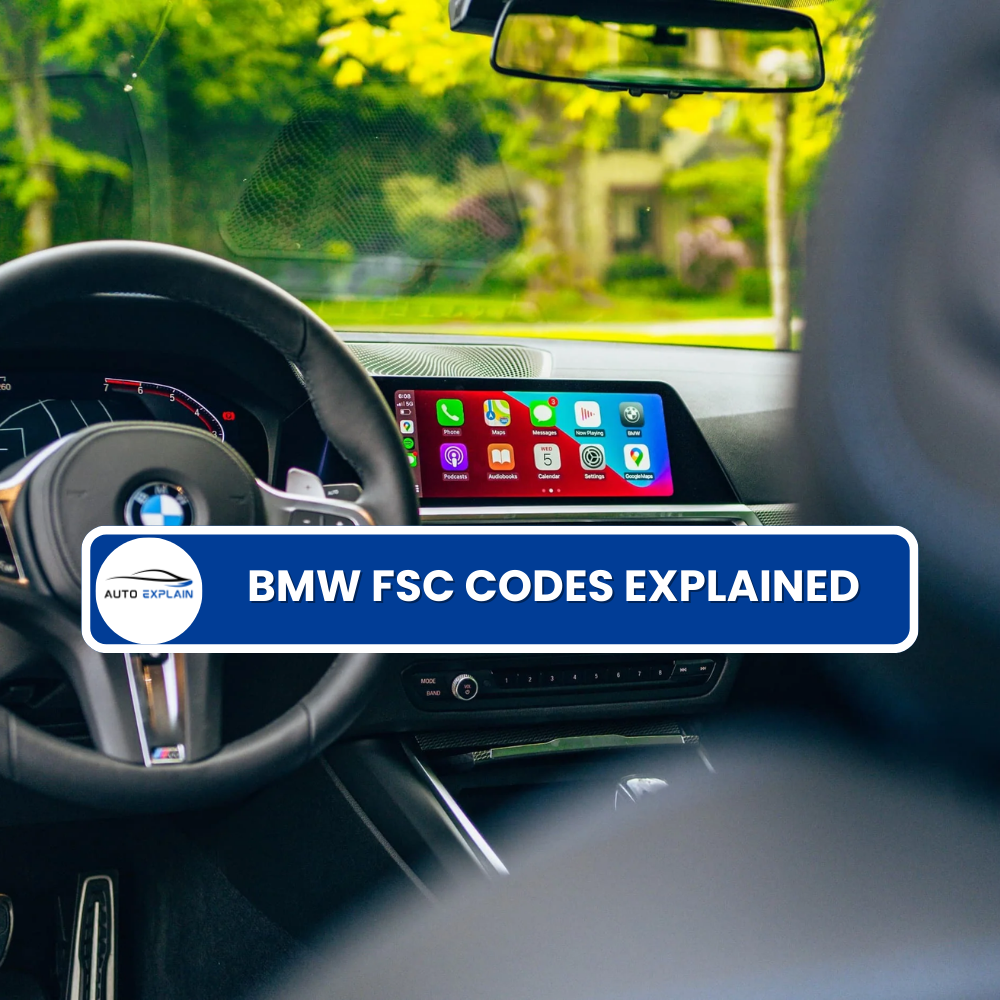
BMW FSC Codes Explained: Full FSC Code List for F-Series
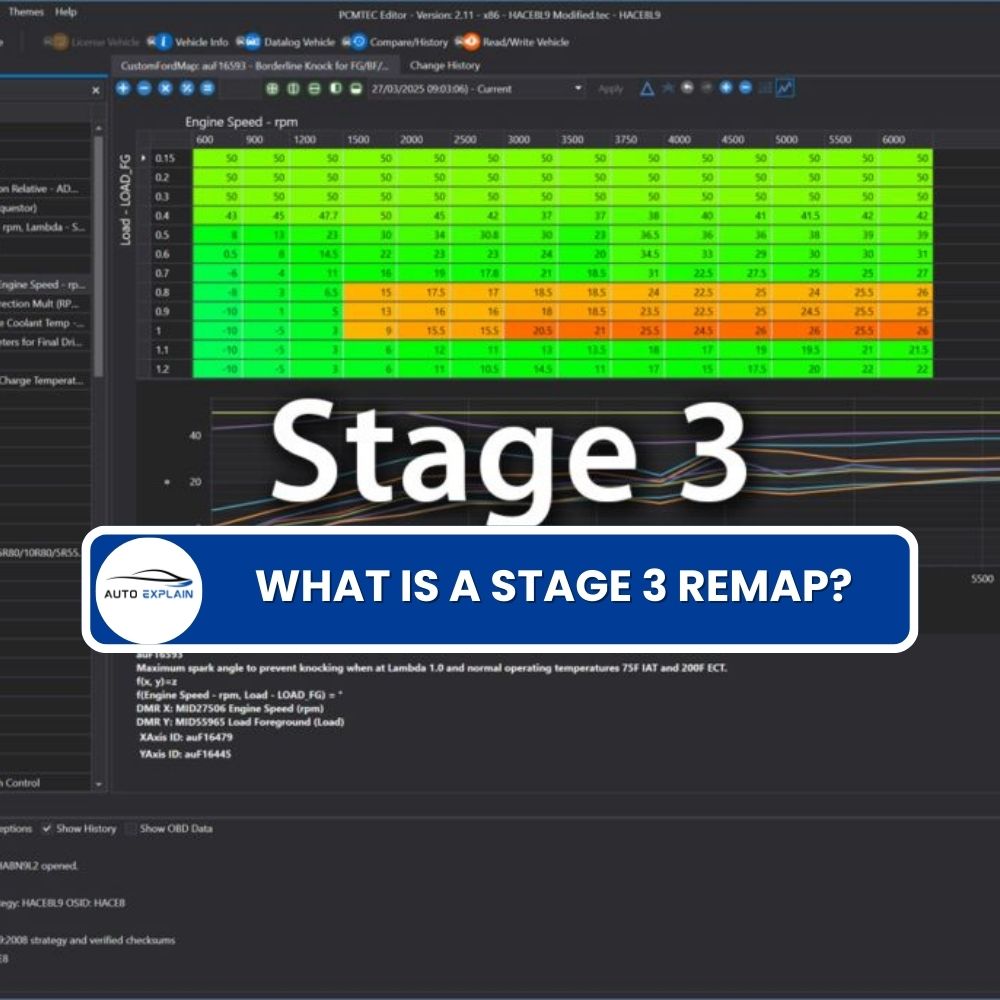
What is a Stage 3 Remap?

The Best Car Tuning Software in 2026: A Comprehensive Guide for Professionals




